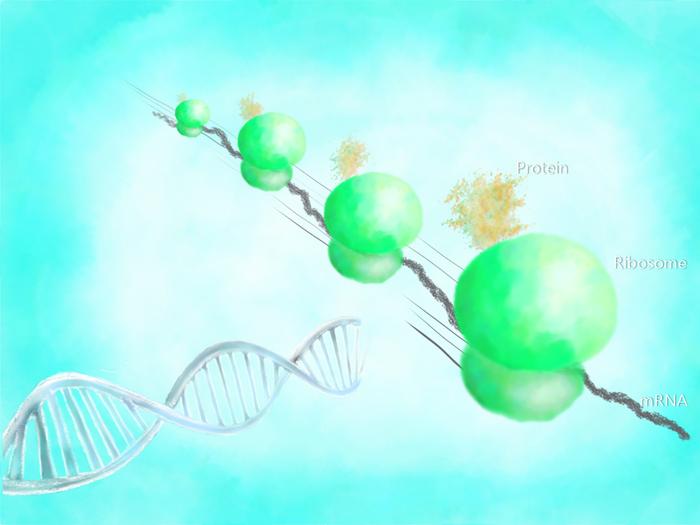Microbial protein production plays a central role in biomanufacturing, supporting the development of pharmaceuticals, industrial enzymes, diagnostic antibodies, and sustainable materials such as biofuels and bioplastics. Organisms like Escherichia coli are widely used in these processes due to their cost-effectiveness and efficiency. As demand grows for scalable and environmentally responsible production methods, improving the efficiency of microbial protein synthesis remains an important area of research.
A recent study from researchers at Nagoya University describes a new approach to enhancing translation efficiency in E. coli. Published in RSC Chemical Biology under the title “Screening and machine learning-based prediction of translation-enhancing peptides that reduce ribosomal stalling in Escherichia coli,” the work combines peptide engineering with artificial intelligence to address a common limitation in protein expression: ribosome stalling.
Tackling ribosome stalling
Ribosome stalling occurs when the translation machinery halts prematurely, and “the synthesis of proteins of interest (POIs) can be affected by various factors, including promoter strength, the nucleotide sequence of mRNA, and tRNA availability, which can limit protein production yields and compromise the functionality of synthetic circuits,” the authors wrote. This phenomenon can severely limit protein yields in E. coli, undermining its utility in producing pharmaceuticals, industrial enzymes, and bio-based materials.
To address this, Teruyo Ojima-Kato, PhD, associate professor, and Hideo Nakano, PhD, professor, in collaboration with researchers from the National Institute of Advanced Industrial Science and Technology and Waseda University, focused on short peptide sequences, or short translational-enhancing peptides (TEPs), that could mitigate stalling. Their previous work showed that appending a tetrapeptide—serine, lysine, isoleucine, and lysine (SKIK)—to the N-terminus of a protein significantly improved translation efficiency.
“In our previous research, we found that adding a short peptide sequence composed of four amino acids—serine, lysine, isoleucine, and lysine—to the N-terminus of a protein reduces ribosomal stalling and significantly improves translation efficiency in E. coli,” said Ojima-Kato.
Building a peptide library and predictive AI model
To expand on this finding, the team constructed a comprehensive tetrapeptide library encompassing all 160,000 possible combinations of the 20 standard amino acids. The researchers then developed an artificial intelligence (AI) prediction model to evaluate the translation-enhancing effects of the possible combinations.
Using data from approximately 250 experimental assays, they trained an AI model to predict which tetrapeptides would most effectively reduce ribosome stalling. The model underwent three rounds of refinement, ultimately demonstrating high accuracy in forecasting translation enhancement across the entire library.
“We present a novel approach for efficient production of proteins using short peptide sequences,” said Kato. This technology may one day be used to improve efficiency in protein production and other areas, including biomanufacturing.
Implications for sustainable manufacturing
Microbial proteins are increasingly vital to biomanufacturing, offering alternatives to petroleum-based products. By integrating peptide design with AI-driven prediction, the team’s method offers a scalable solution to optimize protein expression in E. coli. Their work lays the groundwork for more reliable and cost-effective microbial manufacturing pipelines.

